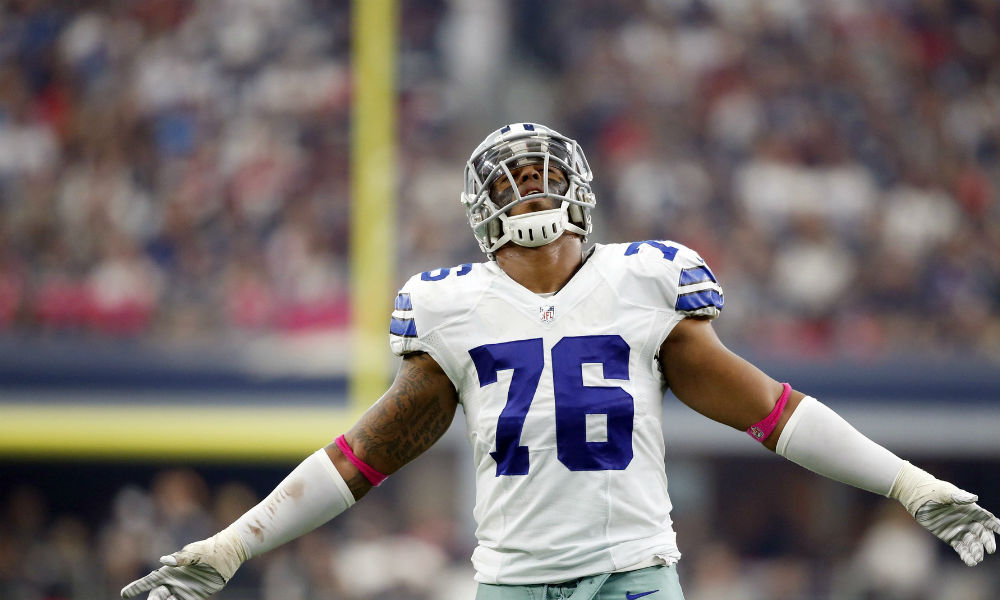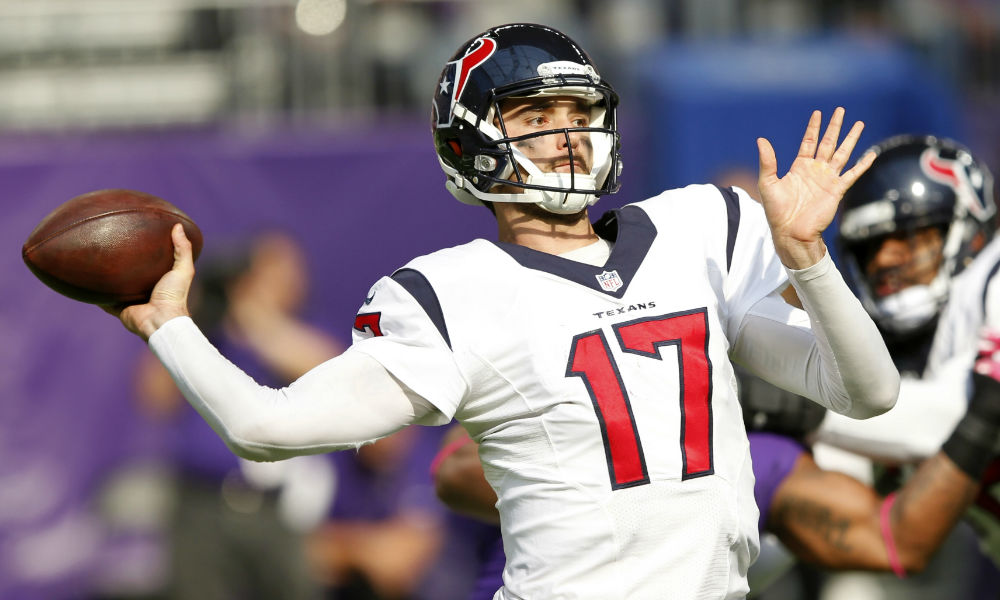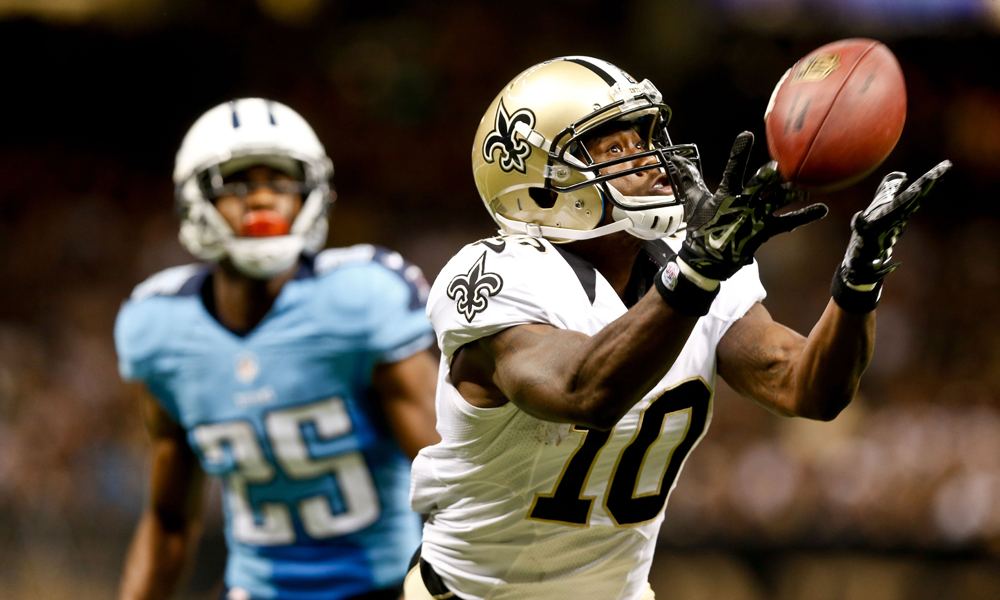News
The Value of Drafting a Backup Quarterback
Teams spend premium picks on backup quarterbacks all the time. Is it worth it?
The NFL is a copycat league, if one team is successful with a certain strategy or by exploiting a market inefficiency, the rest want to attempt to do the same.
When the Green Bay Packers selected Aaron Rodgers in the latter part of round one in the 2005 NFL Draft, despite the fact that they had a great starting quarterback in Brett Favre, team’s philosophies started to change. Rodgers went on to sit on the bench until 2008 and the rest is history. Rodgers has become arguably the best quarterback in football and the Packers didn’t have to experience a huge drop off after they lost their franchise quarterback like most teams do.
Furthermore, the New England Patriots have proven that there is another benefit to drafting a quarterback, even when you have an excellent one on the roster. The Patriots have made a habit of drafting quarterbacks, developing them and trading them off for better draft capital down the road in a pseudo-investment strategy to exploit the market inefficiency of quality quarterback play in the NFL. This is exactly what the Patriots did with Matt Cassel as they selected him in the seventh round, but ended up trading him for a high-second round pick.
After these two examples, teams have tried to mimic the Patriots and Packers as a way to stay ahead of the curve and keep their team in playoff contention.
The New Orleans Saints just did this with Garrett Grayson, the Patriots did it again with Jimmy Garoppolo and the Denver Broncos did it with Brock Osweiler. However, are these teams falling into the trap of allocating unnecessary resources to their quarterback of the future?
The biggest problem with drafting a quarterback when you already have a great starter is that the backup will rarely ever see game action or get meaningful snaps in practice after training camp. This makes it incredibly difficult to judge the quarterback’s ability because there isn’t much to go off of. Teams end up evaluating a player off preseason tape and practice where they are either playing with subpar talent around them or in an environment that doesn’t mimic live game action. You can see a quarterback take a five-step drop and hit a post route in practice 100 times, but until you see in a game with a defensive end breathing down his neck, you never really know how good he is.
Furthermore, if the starting quarterback doesn’t retire or part ways with his team in four years, the quarterback of the future will go through his whole rookie contract without the team really knowing what they have. Any other draft pick that is on a team for four years will have made an impact on special teams at the very least. Instead, the biggest impact that most backups have, if the starter doesn’t get hurt, is as a holder on the field-goal unit. Not exactly a very difficult job with a scarcity of players that can do it.
Moreover, the fact of the matter is that for a team to get a really good quarterback, one that a team wins because of and not just one they can win with, you almost have to draft them in the first round. Out of the 34 quarterbacks drafted between 1994 and 2013 who made a Pro Bowl, 19 of them were selected in the first round per Football Outsiders. This means that teams would have to draft a player in the first round who wouldn’t make any considerable impact for likely two or three years, which most teams, outside of the 2005 Packers, aren’t willing to do.
Most teams rely on their first-round picks to make an immediate impact and be an instant upgrade over someone on their roster, so taking a quarterback who won’t see the field immediately is a huge stretch for most general managers, who may not even have a job by the time the quarterback they drafted gets a chance.
The one benefit that teams likely see with drafting a quarterback is that they have a talented backup in case their starter gets hurt. However, that player may not be an upgrade over a veteran quarterback who has experience playing in the league at a competent level like Brian Hoyer.
Because of the scarcity of people on the planet who can play quarterback at a high level in the NFL, this plan will not always work. There will be players like Russell Wilson or Tom Brady, who slip through the cracks, but those are the exceptions and not the rule.
The best option is to wait to draft a quarterback until you’re extremely certain that your team’s starting quarterback will be gone either that season or the one after that. Anything beyond that is too long with too much room for error. This will make it easier for a general manager to invest an early pick on the position because there will be an immediate path for the quarterback to see immediate playing time, so that the team can truly evaluate his talent in live action.
Without a clear exit plan for the starting quarterback, it isn’t smart to invest draft capital in a quarterback. Hopefully, your team doesn’t fall into the quarterback of the future trap.
News
Buccaneers admit mistake, boot Aguayo
Source: Mike Florio of ProFootballTalk
Powered by WPeMatico
News
Did Bucs put too much pressure on Aguayo?
Source: Mike Florio of ProFootballTalk
Powered by WPeMatico
News
Broncos holding their breath on Derek Wolfe
Source: Mike Florio of ProFootballTalk
Powered by WPeMatico




